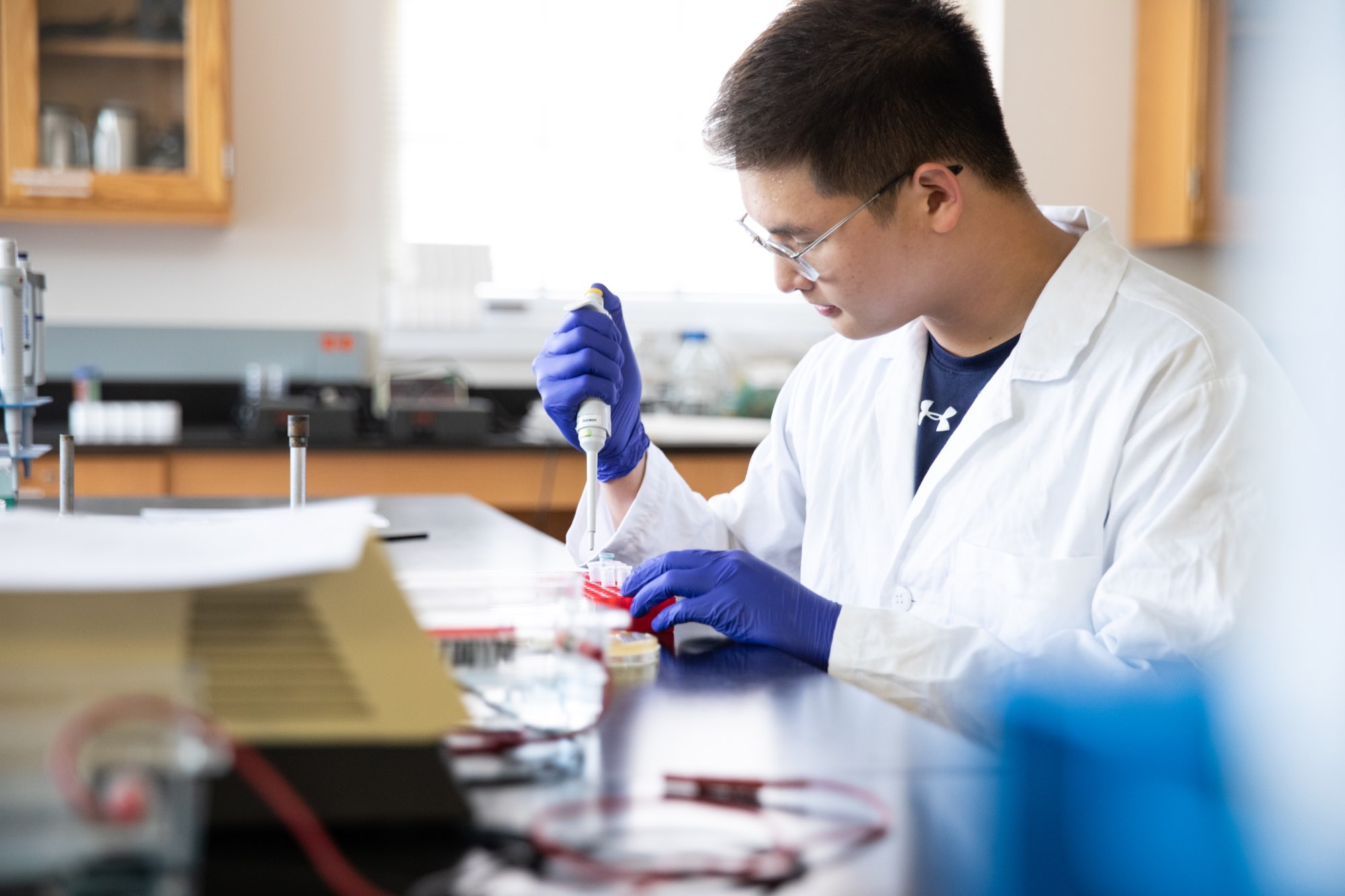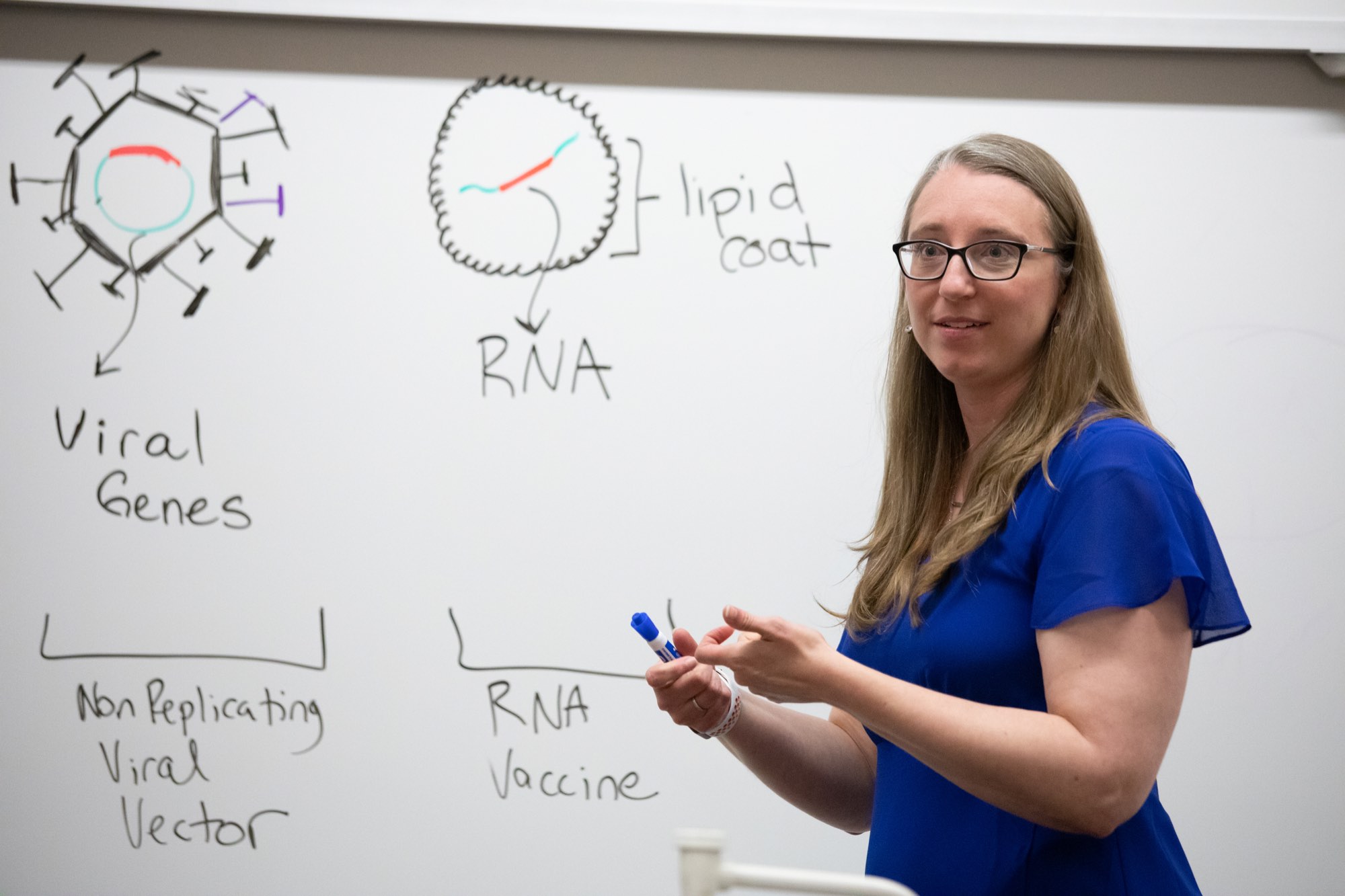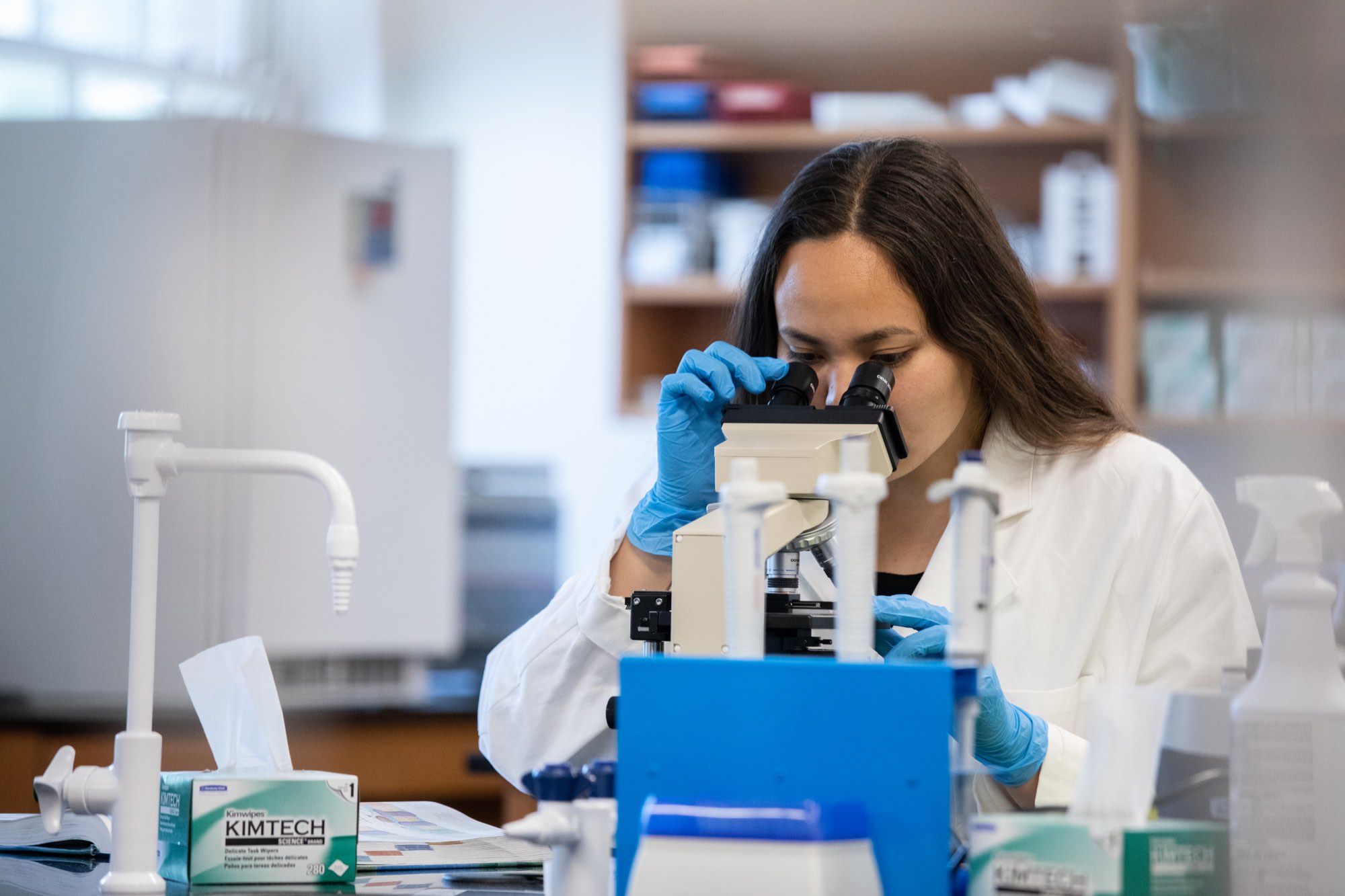Open the doors to exploration.
From investigating the molecular genetics of microbes to observing the wildlife of the Galapagos Islands, the biology major at Mary Washington can meet you where your passions lie and pave the way to an exciting career. Our research-intensive program will prepare you to think like a scientist and creatively tackle tomorrow’s challenges in the life sciences.
Biology Degree Requirements
The biology major requires 40 credits, including five required courses, a required senior seminar, one course designated research-intensive, and one additional upper-level course with a laboratory component.
The minor in biology requires 22 credits in core and elective biology courses. You’ll take at least three 300- to 400-level biology courses, two with a laboratory component.
What courses will I take?
You’ll choose from a wide variety of biology courses, including botany, chordate anatomy, plant ecology, animal ecology, entomology, histology, nutrition and metabolism, microbiology, vertebrate zoology, virology, and more.

How can I learn outside of class?
The Department of Biology prepares students for internships in the fields of research, medicine, zoology, botany, ecology, and beyond. Conduct independent research under faculty mentorship during the academic year and the Summer Science Institute. Present research at national and regional conferences. Combine that with exciting opportunities in museums in nearby Richmond, Virginia and Washington, D.C., and it’s easy to see why a future with a biology degree is boundless.

What can I do with a biology degree?
Biology graduates go on to work in research, health care, environmental conservation, biotechnology, forensic science, government and policy, science publishing, education, an other related fields. They’re working at places like National Institutes of Health, Quest Diagnostics, Pender Veterinary Centre, and other top employers. Many grads go on to pursue advanced degrees, opening the door to even more possibilities.




